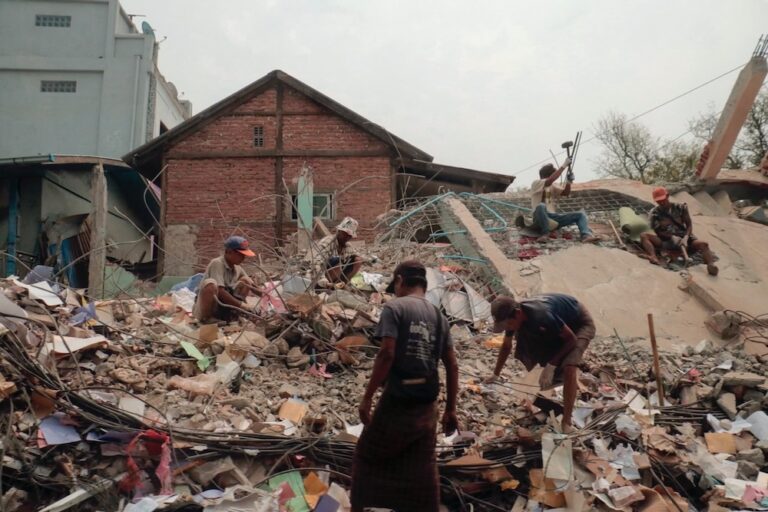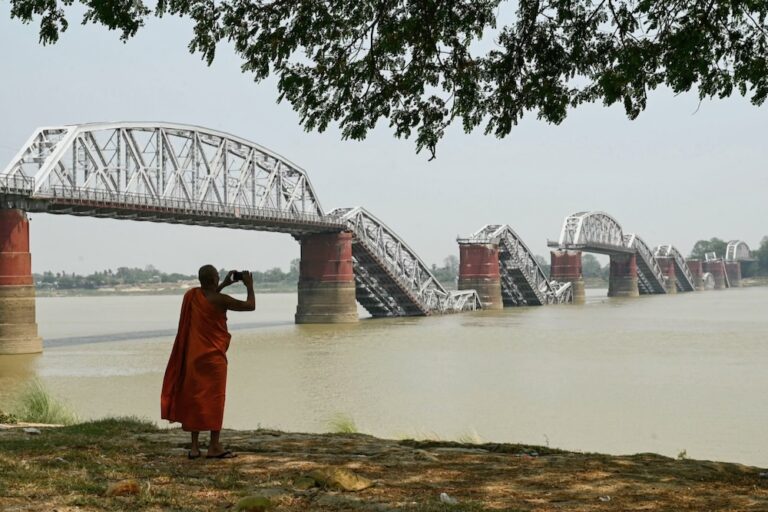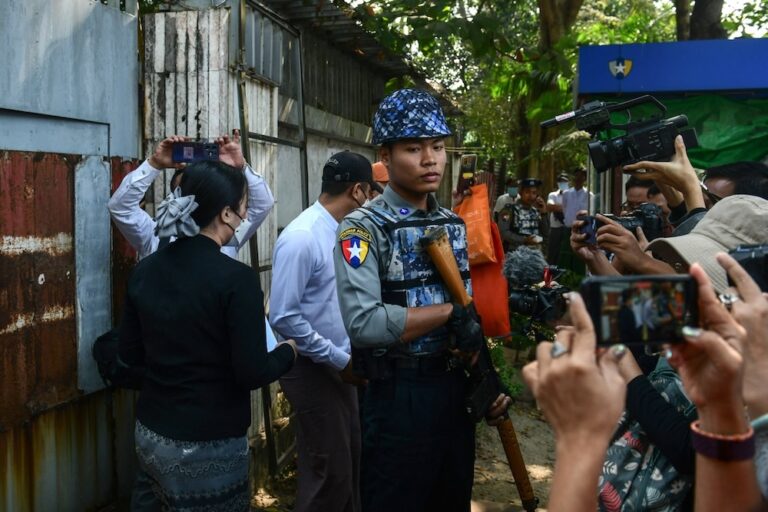(RSF/IFEX) – Reporters Sans Frontières is launching an appeal for the immediate and unconditional release of seven journalists jailed in Burma. The organisation calls for the establishment of an independent press, the essential precondition for a democratic debate, and media access for all ethnic minorities. **For background, see IFEX alerts of 13 August 1998 (San […]
(RSF/IFEX) – Reporters Sans Frontières is launching an appeal for the
immediate and unconditional release of seven journalists jailed in Burma.
The organisation calls for the establishment of an independent press, the
essential precondition for a democratic debate, and media access for all
ethnic minorities.
**For background, see IFEX alerts of 13 August 1998 (San San Nweh and Win
Tin), 9 October 1997, 17 April 1996, and 10 January 1996 (Win Tin)**
On 18 September 1988, radio programmes were interrupted to announce the
installation of a new military regime, the State Law and Order Restoration
Council (SLORC), which was replaced in November 1997 by the State Council
for Peace and Development (SCPD). Ten years on, press freedom is
non-existent and hundreds of activists supporting the National League for
Democracy (NLD) – led by Nobel peace prize winner Aung San Suu Kyi – have
recently been arrested.
Since the junta took over, at least 14 Burmese journalists have been sent to
jail. Two have died there. Ne Min, arrested in October 1990 for showing “too
much sympathy with the opposition”, died early the following year because he
was not given treatment for cirrhosis. Ba Thaw, a newspaper cartoonist
arrested in July 1989, died in prison from cardiac arrest on 11 June 1991.
There has been no official inquiry into the exact causes of his death.
Today, there are still seven journalists in Burma’s jails, all members of
the NLD. RSF is calling for their immediate and unconditional release. One
of them, San San Nweh [also reported as San San Nwe], has been held in
Rangoon’s Insein prison since August 1994. On 6 October 1994, under Article
5 of the country’s emergency Laws, a court whose proceedings took place in
the prison sentenced her to seven years in jail for “spreading information
prejudicial to the state”. Among other charges, she was accused of taking
part in a video report by two French journalists in April 1993. San San Nweh
is also serving a three-year consecutive sentence under article 14 of the
law against illegal assembly. Like the other six jailed journalists, she is
being held in extremely difficult conditions and is reported to have been
ill-treated. Win Tin, editor of the daily “Hanthawadi” and deputy chairman
of the Burmese Writers’ Association, who was sentenced to a ten-year jail
sentence in 1989, spent several months in a cage usually used for dogs. Win
Tin is reported to be suffering from severe inflammation of the vertebrae
and has lost most of his teeth.
The Burmese press operates under strict censorship which bans the use of
expressions such as “democracy” and “human rights.” Contacts with the
foreign press are curtailed; Burmese citizens risk jail if they are found
guilty of giving “false information” to the international media. The legal
arsenal is so wide-ranging that no free press can exist. For example, under
the 1996 law on computer equipment, anyone possessing an unlicensed computer
faces up to 15 years in prison.
Foreign journalists cannot do their job unhindered in Burma. Last August, at
least five foreign journalists were expelled for having contacts with NLD
members or for entering the country on “tourist visas.” Only a few foreign
news agencies now have offices in Rangoon, and they may only work with
Burmese staff.


